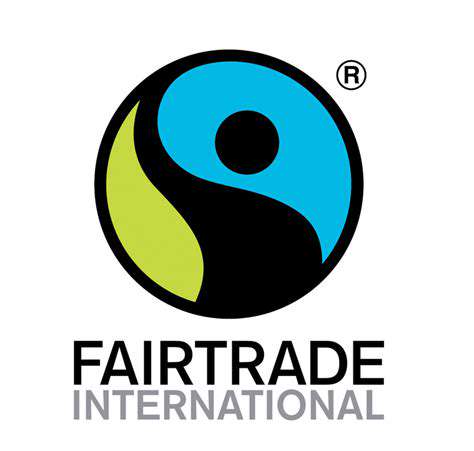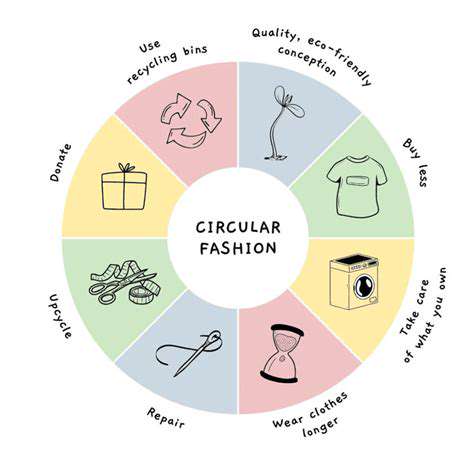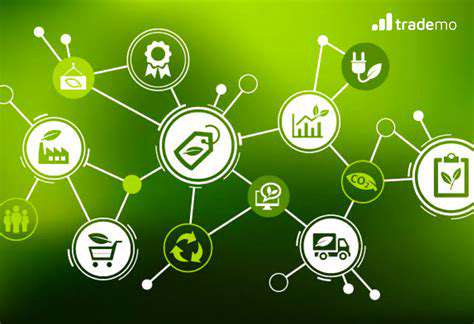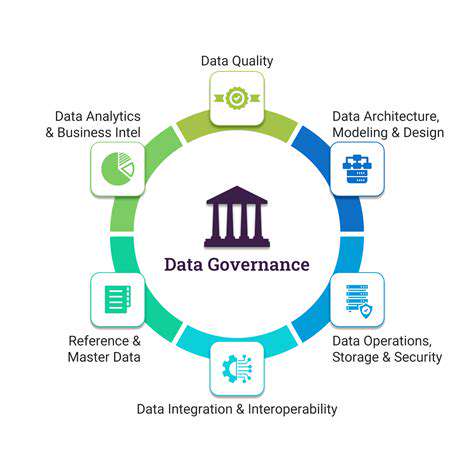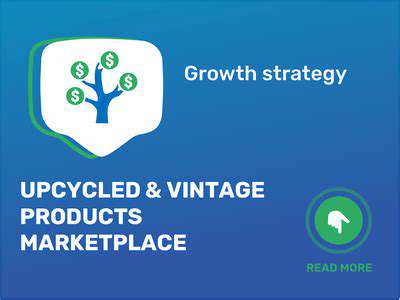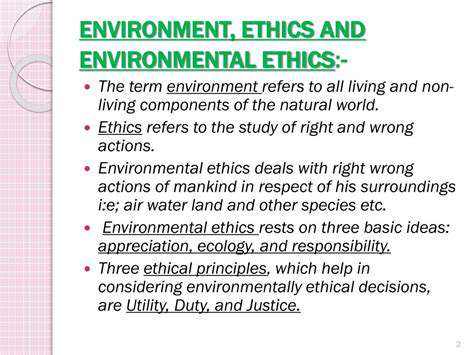Sustainable Fashion Certifications: Which Ones Matter?
When it comes to textile certifications, the Global Organic Textile Standard (GOTS) stands out as a globally recognized benchmark for organic material usage and environmental responsibility. This comprehensive standard doesn't just focus on the end product; it scrutinizes every step of production, from field to finished garment. By requiring sustainable sourcing of materials like organic cotton and wool, GOTS significantly reduces pesticide contamination, water pollution, and chemical runoff. What makes GOTS particularly valuable is its dual focus - it equally prioritizes ecological preservation and worker welfare.
The human element of GOTS certification often gets overlooked. Beyond environmental protocols, the standard enforces strict labor guidelines including safe working environments, living wages, and absolute prohibition of child labor. This holistic approach has made GOTS a gold standard for brands genuinely committed to ethical manufacturing practices.
OEKO-TEX Standard 100
While many certifications focus on production methods, OEKO-TEX Standard 100 takes a consumer-first approach by guaranteeing textile safety. This certification applies rigorous testing to identify and eliminate hazardous substances like heavy metals, formaldehyde, and other toxic compounds that might linger in fabrics. The importance of this certification can't be overstated - it protects consumers from potential health hazards that ordinary washing can't remove.
OEKO-TEX's value extends beyond safety checks. Their certification process creates unprecedented supply chain visibility, with testing conducted at multiple production stages. This multi-point verification system gives consumers confidence that every certified product meets consistent safety benchmarks from raw material to final inspection.
Fair Trade Certification
Fair Trade certification represents a paradigm shift in global commerce by ensuring equitable compensation for artisans and farmers in developing nations. This goes beyond basic wage requirements - the certification actively improves community welfare through education initiatives, healthcare access, and business development programs. Perhaps most importantly, Fair Trade gives producers collective bargaining power they've traditionally lacked in global supply chains.
The environmental component of Fair Trade is equally transformative. Certified producers must implement sustainable agricultural techniques that preserve local ecosystems while maintaining productivity. This long-term approach prevents soil depletion and protects biodiversity, creating farming systems that can sustain communities for generations.
B Corp Certification
B Corp Certification represents the most comprehensive sustainability evaluation for businesses. Unlike product-specific certifications, B Corp assesses a company's entire operation - from carbon footprint to employee benefits to community impact. What sets B Corps apart is their legal commitment to balance profit with purpose, embedding social and environmental responsibility into their corporate DNA.
Sustainable Materials Innovation
The materials revolution in fashion has given rise to remarkable alternatives to conventional textiles. Engineers and designers now transform everything from recycled plastics to agricultural waste into high-performance fabrics. These innovations dramatically reduce fashion's environmental toll by diverting waste from landfills and decreasing reliance on petroleum-based synthetics.
While these materials currently represent a small market share, their growth trajectory suggests a fundamental industry shift. The development of scalable production methods and specialized certifications for these novel materials indicates they'll play a major role in fashion's sustainable future.
Transparency as the New Standard
In today's conscious consumer market, supply chain transparency isn't optional - it's expected. Modern shoppers demand visibility into a product's journey from raw material to retail rack. Certifications fill this need by providing verified documentation of ethical sourcing and production practices.
This transparency revolution is forcing the fashion industry to confront uncomfortable truths while rewarding brands that prioritize ethical operations. The result is a powerful market mechanism that aligns corporate behavior with consumer values, creating a virtuous cycle of improvement across the sector.
GOTS: Global Organic Textile Standard
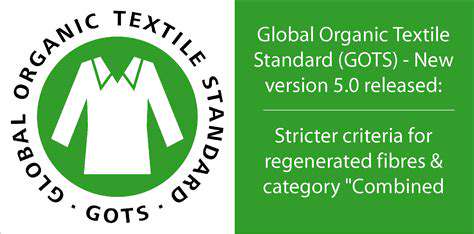
GOTS Certification: A Deep Dive
As a globally recognized standard, GOTS represents more than just an organic label - it's a comprehensive sustainability framework. The certification's true value lies in its cradle-to-grave approach, monitoring every production phase for environmental and social compliance. For eco-conscious brands, GOTS provides a roadmap for operational transformation.
What most consumers don't realize is that GOTS certification requires annual on-site inspections at every production facility. This hands-on verification ensures continuous compliance rather than relying on paperwork alone. The standard's specificity - down to approved cleaning products in factories - demonstrates its unparalleled rigor.
Key Features of GOTS Certification
GOTS' environmental protocols set the bar for sustainable textile production. The standard prohibits thousands of hazardous chemicals commonly used in conventional textile manufacturing, forcing innovation in safer alternatives. Its water management requirements have revolutionized wet processing in the industry, reducing pollution and consumption simultaneously.
The social criteria may be GOTS' most transformative element. By mandating formal employment contracts, grievance mechanisms, and regular working hours, the standard brings garment work into the formal economy. These requirements have particularly impacted developing nations where textile production dominates local economies.
Environmental Impact of GOTS
The ecological benefits of GOTS certification manifest across multiple dimensions. Organic farming practices regenerate soil health while eliminating synthetic pesticide runoff that contaminates waterways. The standard's wastewater treatment requirements have pushed facilities to adopt closed-loop systems that recycle up to 95% of process water.
Perhaps the most underappreciated benefit is GOTS' role in climate change mitigation. Organic soils sequester significantly more carbon than conventional farmland, while the prohibition of nitrogen-based fertilizers eliminates a major source of greenhouse gas emissions.
Social Responsibility and GOTS
GOTS' labor standards represent a radical departure from fast fashion's status quo. The standard's living wage requirements (though challenging to implement) push manufacturers toward fair compensation models. Its health and safety protocols have dramatically reduced workplace injuries in certified facilities.
The standard's prohibition of forced overtime and requirement for rest days has improved quality of life for thousands of textile workers. These changes demonstrate how certification standards can drive meaningful social progress in global supply chains.
Traceability and Transparency in GOTS
GOTS' chain-of-custody system creates an unprecedented paper trail for certified textiles. Every handler - from ginner to garment factory - must maintain detailed transaction records. This documentation enables something remarkable - consumers can theoretically trace their t-shirt back to the specific farms that grew its cotton.
The standard's public database of certified entities adds another layer of accountability. This transparency empowers retailers, consumers, and activists to verify claims and identify potential greenwashing in the market.
Consumer Benefits and Market Demand
The value proposition for consumers extends beyond environmental ethics. GOTS-certified textiles often boast superior quality - organic cotton fibers are typically longer and stronger than conventional varieties. The absence of harsh chemicals makes these fabrics gentler on sensitive skin and less likely to cause allergic reactions.
The market response has been telling - GOTS certified textile production grew by 20% annually pre-pandemic, outpacing conventional textile growth by a factor of four. This demand surge proves that consumers will support sustainable options when given transparent, trustworthy certifications.
